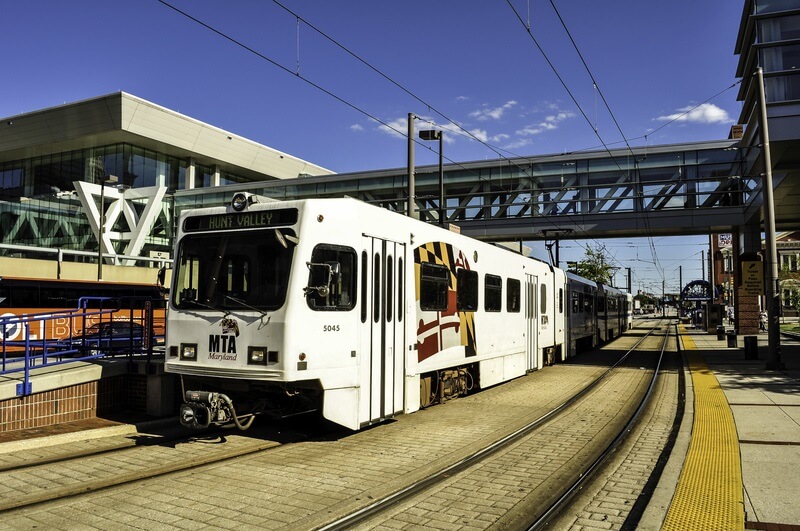New Coalition to Seek Creation of a Transit Authority for the Baltimore Region

A newly formed advocacy group, the Transform Maryland Transportation Coalition, hopes to be the catalyst for enhanced transit service in the Baltimore region.
Their top priority: the creation of an independent transportation authority similar to WMATA, which owns and operates the Washington, D.C. region’s sprawling subway and bus networks.
The coalition, reported here for the first time, has been months in the making. It consists of nearly 70 established environmental, social justice and progressive organizations. Charter members include the Chesapeake Bay Foundation, the Central Maryland Transportation Alliance, the Coalition for Smarter Growth, Maryland League of Conservation Voters, the Maryland Sierra Club, Maryland Center on Economic Policy, the NAACP Maryland State Conference and Progressive Maryland.
“As we come out of COVID, we’re at a transportation and environmental crossroads,” said Brian O’Malley, head of the Central Maryland Transportation Alliance. “It’s a critical time and an opportunity for Maryland to do a course correction. That means we stop fueling the climate crisis and widening disparities.”
The organization’s main goals will be to expand and improve bus and rail service in the Baltimore area, bring enhanced transit to under-served communities, improve access to jobs, and reduce the climate impacts generated by transportation, particularly cars.
In an interview, co-organizer Paul Sturm, the head of the Downtown Residents Advocacy Network in Baltimore, said the region is being held back by a lack of dependable bus and rail service.
“We want to be sure that Maryland has a robust public transportation system that is reliable, that is comprehensive and that gives people as many opportunities as possible to get where they want to be,” he said.
Nearly 30% of city residents don’t own a car.
Implicit in the coalition’s push for a new regional transportation authority is long-simmering frustration with the Maryland Transit Administration, which operates the Baltimore region’s two subway lines and its bus network. Although the Washington, D.C. and Baltimore subway systems launched around the same time, the D.C. system is one of the nation’s largest, while its neighbor to the north remains a work in progress.
The creation of a transit authority would be a heavy lift, requiring changes in state law and buy-in from officials in Baltimore, Baltimore County and — in all likelihood — surrounding counties. Many questions, particularly around funding, governance and land use issues, would need to be resolved.
But Sturm said an authority would give local residents and leaders much more say in their own affairs. In 2015, Gov. Lawrence J. Hogan Jr. (R) canceled plans for the Red Line in Baltimore, an east-west line that qualified for nearly a billion dollars in federal funds.
“We’re one of the few metropolitan regions that doesn’t have a regional transportation authority, so we have to rely on the state,” Strum said. “When there is a governor who doesn’t seem committed to a robust public transportation system in the state’s largest city, we have what we have.”
“There’s no local control, there’s no local involvement, there’s no accountability” in the current system, he added. “The governor and MTA can do whatever they want.”
Del. Tony Bridges (D-Baltimore) has introduced legislation that would establish a “transit governance and funding commission” for the Greater Baltimore area. The commission would be tasked with making recommendations to state officials by the end of 2023.
In addition to resurrecting the Red Line, other priorities of the Transform Maryland Transportation Coalition include an expansion of existing MARC service, a boost in the use of electric vehicles, reduced fares for low-income and youth riders, and a reduction in transportation-related deaths and injuries.
Sturm said the group wanted to unveil its agenda during the 2022 campaign in order to get candidates for local and statewide office thinking about its objectives.




 Creative Commons Attribution
Creative Commons Attribution